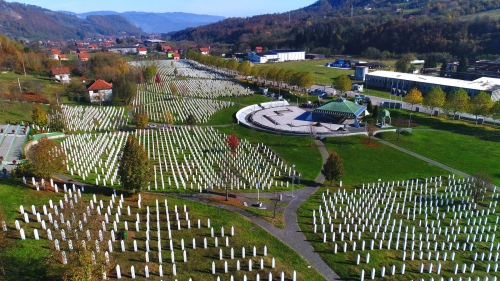British man's adventure lands him in Afghan POW camp
CHAH AB, Afghanistan, May 14 (AFP) - Beer, drugs, cars and girls once filled the life of British man Saeed Khan, until he met his Pakistani relatives and joined the Taliban militia in Afghanistan.
Weeks later he was on the frontlines in a remote northern province, abandoned by his Taliban mentors and hunted by their enemies. He was captured and has spent the past two and half years as a prisoner of war.
"I was living in England working in the takeaways, helping with my brothers. I used to like my Carlsberg (beer) and my cars, and my weed and girls," he told AFP at a PoW camp in Afghanistan's northeastern Takhar province.
"But because of the high life and ecstasy and things like that I got in very deep, so my parents said I should come to Pakistan."
In a thick northern English accent, the 24-year-old described how his relatives in Peshawar, a conservative Pakistani town bordering Afghanistan, preached to him about Islam and the evils of drugs.
Like most ethnic Pashtun families in Pakistan's northwest, Khan's relatives were strong supporters of the Taliban, the movement of "Islamic students" which had seized the Afghan capital Kabul in 1996.
"I became friends with them and started praying five times a day. Then the subject came to Afghanistan and they said it was a place that needed people like me," Khan said.
| __________
"If someone wants to come and fight a holy war here they are wrong because this is not a holy war -- this is Muslims fighting Muslims..." ___________ |
Many young Pakistani students have made the road journey from Peshawar to Kabul and joined the Taliban's jihad, or holy war, to create a "pure" Islamic state in Afghanistan.
About 100 of them are crammed into the fortress-like mud walls of the prison near this northern town, surrounded by four sheer mountains some two hours walk from the nearest road.
Having received permission from his uncles to join the militia, Khan said he drove to Kabul with some friends and enlisted. He spent the next 40 days at a Taliban training camp near the capital, learning to shoot AK-47 assault rifles, rocket launchers and machine guns.
"It was an adventure for me because it was a war. I'd never held a gun in my hand before but after a while I sort of blended in. I never like to look weak to anyone," he said.
His training completed, he went "shopping" in Kabul before he was sent to the frontlines in northern Kunduz province. The reality of war in Afghanistan, a country of hardened guerrilla fighters who wore down the Soviets during Moscow's disastrous 1979-89 intervention, soon struck home.
"For three days it was quiet but then one night they (troops loyal to the ousted government) attacked the other end of the line. We were moved backwards and forwards several times before the Taliban in the line ahead of us withdrew, he said.
"We didn't know what to do so we moved back as well, we decided to get out.
"We traveled for seven hours but by then it was too late and we were surrounded. Three of us tried to break through but they didn't make it. We were trying to escape down a river when they caught us."
Khan said he had been treated well since his capture in December 1998. He gave English lessons to one of his prison governors, who paid him with special privileges such as fishing trips in the surrounding hills.
But he said he missed his family in England, including his wife and four-year-old son. His last letter from them was nine months ago, when the Red Cross made a rare prison visit with mail.
"It's good that I'm a Muslim and I'm surrounded by Muslims. I've learned the language, I keep my beard and I pray five times a day. But if I could see my family I'd be a lot happier," he said.
"At first I couldn't live with it. I was just sitting in the corner thinking. I've only just started to get used to it and I know that I'll get out one day."
A spokesman for the opposition authorities in Afghanistan said Khan could be freed if his family offered the Taliban money to release some of their prisoners.
Prisoner swaps are not uncommon between the two sides, but the Taliban would almost certainly seek the release of Afghan prisoners before they worried about a Briton.
Britain does not recognize the Taliban regime and does not have an embassy in Afghanistan.
"I'm sure if they (the Taliban) had a British prisoner he'd be dead by now. They'd have crunched him up," Khan said.
He said he would like to warn young Pakistanis at conservative religious schools not to be "brainwashed" into thinking it was their Islamic duty to join the civil war in Afghanistan.
"If someone wants to come and fight a holy war here they are wrong because this is not a holy war -- this is Muslims fighting Muslims," he said.
"They think the US and Russia are trying to take over the religion, so they give (the students) guns and send them here to fight instead of sitting them down and teaching them about religion and politics."
The Afghan opposition accuses Pakistan of providing military support to the Taliban but Islamabad insists it cannot stop individuals from crossing the border to join the militia.
Topics: Afghanistan, Conflicts And War, Taliban, War In Afghanistan (2001-2021)
Views: 1274
Related Suggestions

















